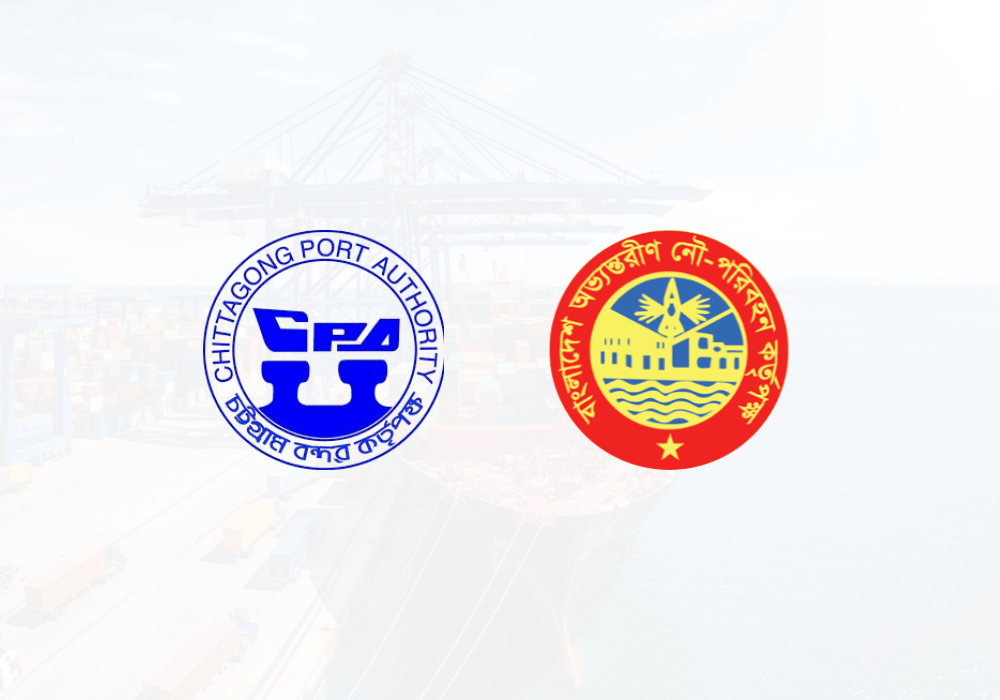The Chittagong Port Authority (CPA) has signed two major agreements to strengthen the country’s port and logistics system. One deal is with the Bangladesh Inland Water Transport Authority (BIWTA) to take over the long-term management of the Pangaon Inland Container Terminal (ICT), and another is with the Bangladesh Navy to build a heavy-lift cargo jetty at Laldia-2 in the port area.
Read More: Exports Through Hili Land Port Cross Tk30cr in Three Months
Under the agreement with BIWTA, CPA will operate the Pangaon ICT and its adjoining 48.24 acres of land on lease. The initial lease will run for 10 years from December 1, 2025, to November 30, 2035, with yearly renewals, while the overall contract will remain valid for 30 years. This step is expected to increase cargo movement by river, easing pressure on highways where 95 percent of Chattogram’s cargo is currently transported. By shifting more trade to waterways, the move will reduce logistics costs and ensure safer, more efficient cargo handling.
CPA also has plans to set up a free cotton zone at Pangaon ICT to attract new businesses and expand trade opportunities.
In a separate agreement, CPA signed a contract with the Bangladesh Navy to construct a 240-metre-long heavy-lift cargo jetty with backup facilities at Laldia-2. This will be the country’s first dedicated facility for handling heavy cargo, with a load capacity of five tonnes per square metre. The project is being implemented by the Navy under delegated works provisions of the Public Procurement Rules.
Read More: Government Urges Practical and Aesthetic Jute Products as expanding to 1 cr Bag Market
The signing ceremonies took place at BIWTA headquarters in Dhaka in the presence of Shipping Adviser Brig Gen (retd) M Sakhawat Hussain, Shipping Ministry Senior Secretary Mohammad Yusuf, CPA Chairman Rear Admiral SM Moniruzzaman, BIWTA Chairman Commodore Arif Ahmed Mostafa, and senior officials from CPA, BIWTA, the Navy, and the ministry.
Officials expressed hope that these initiatives would not only ease transportation bottlenecks but also position Bangladesh’s seaports for stronger trade growth in the coming years.


